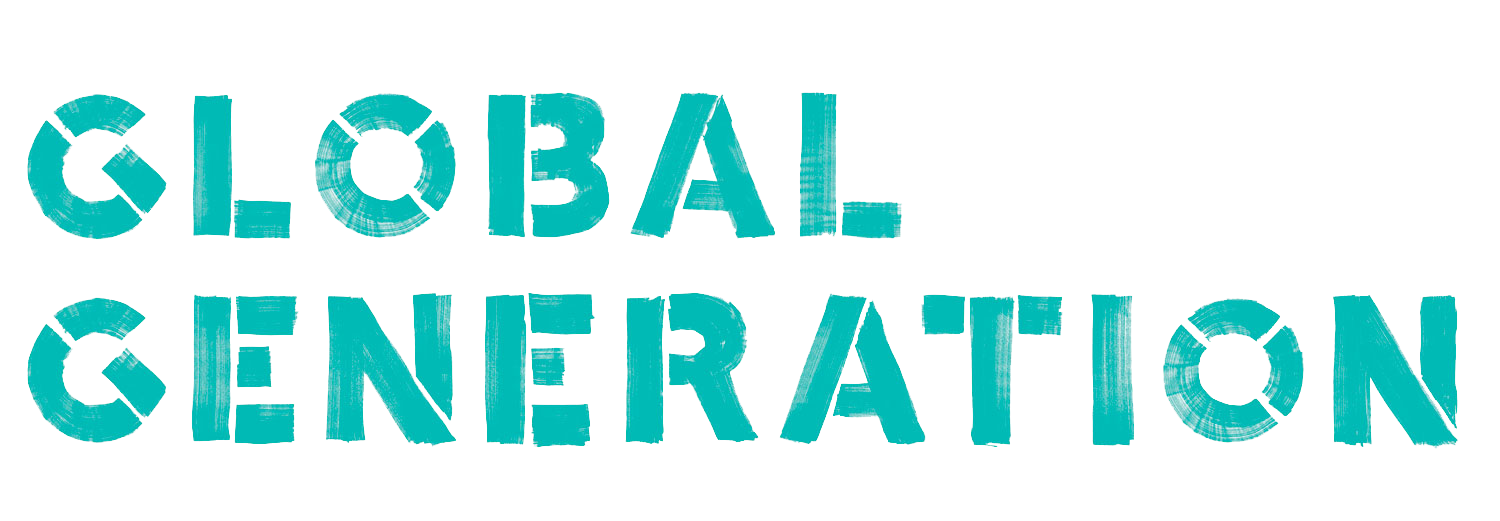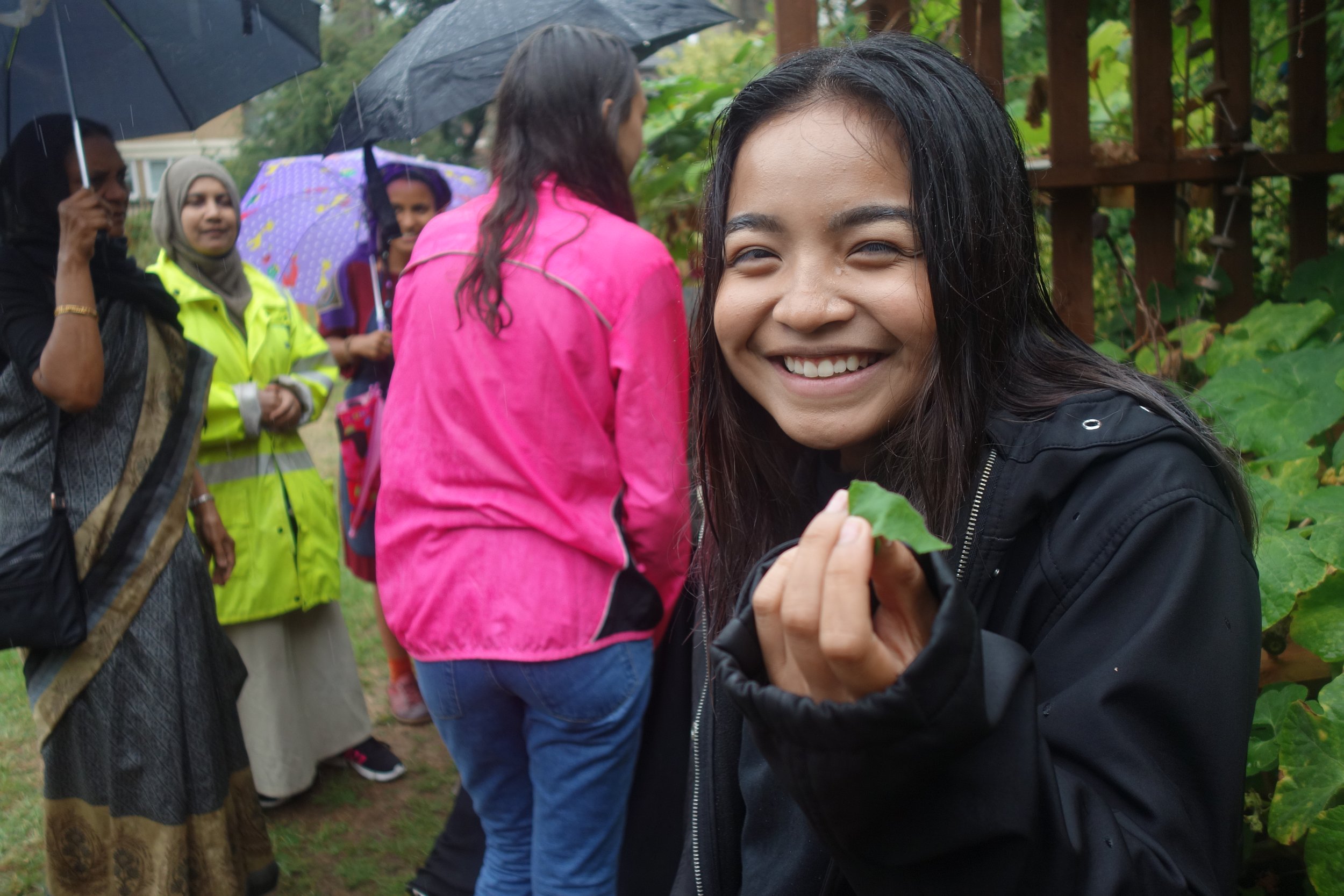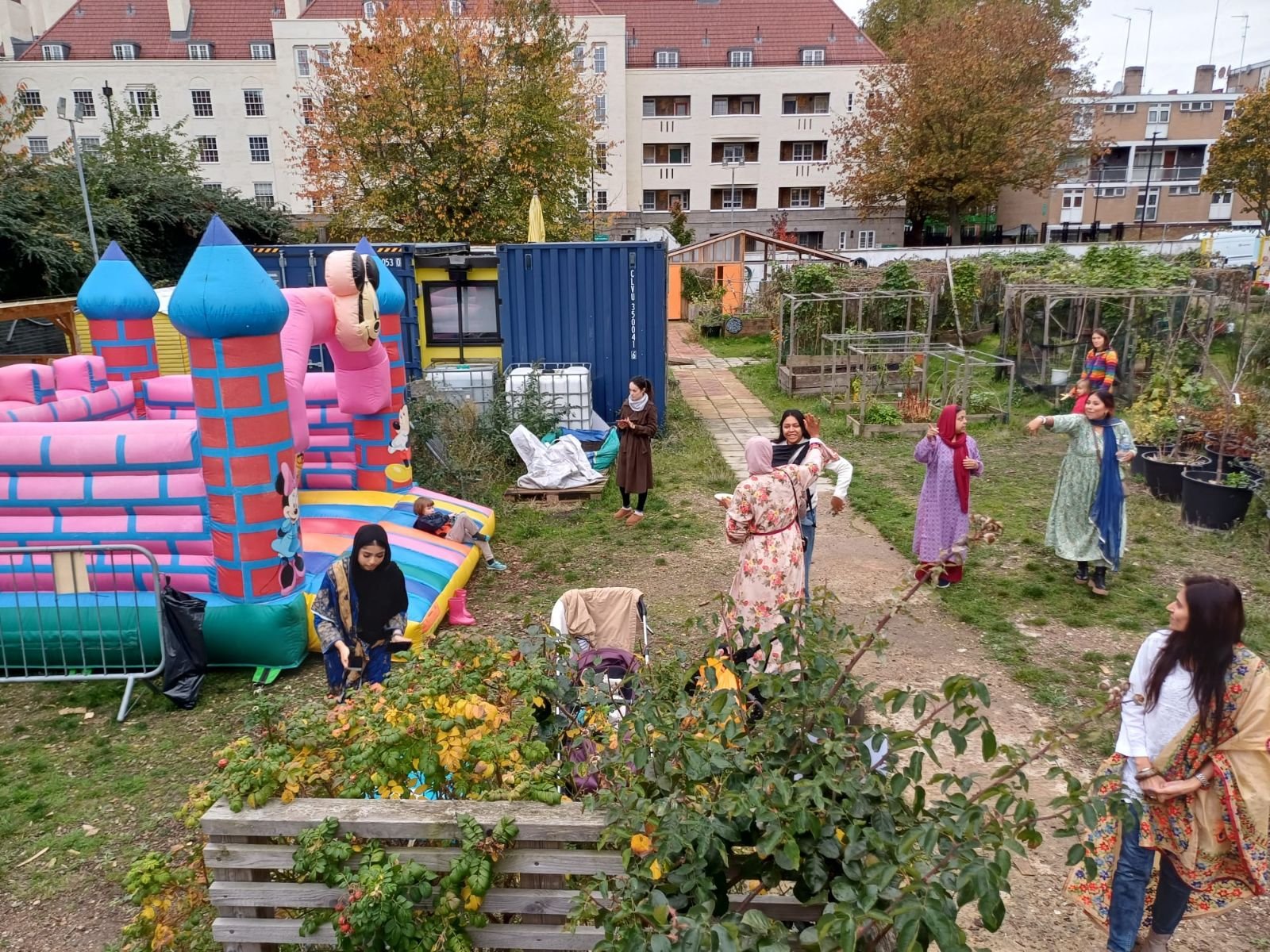Reflecting on Seeds for A Better world
It was a sunny day on Pertwood Farm in the summer of 2016, and I was in the kitchen preparing a veggie chilli for a big group of young people arriving later that afternoon. I couldn’t have known then that I was really preparing for the beginning of a journey that would evolve for years. That afternoon, I met some of the young people who would go on to become the young ambassadors for our Seeds for a Better World project.
The Seeds for a Better World Project is the sequel to Stories for a Better World, and Bees for a Better World, all funded by Heritage Lottery Fund. As explorations of important natural and cultural elements of our world that are being lost or forgotten, this was yet another opportunity to embark on a journey with a group of young people.
The project began with a trip to the Heritage Seed Library at Ryton Organic Gardens in Coventry, to learn about the tradition, science, and art of seed saving, before embarking on our own journey growing food together, with the help of some talented and inspirational food growers and seed savers at the Skip Garden, Regents Park Allotment Gardens, Millennium Seed Bank and beyond.
We also looked beyond the process of seed saving in the garden, and delved into an exploration of the cultural significance of seed saving not only as integral to our identity as human beings, interconnected and as part of the wider network, but also crucial to the protection and celebration of our stories and identities. By connecting with and learning from food growers and seed savers in Islington, Camden, and across London, and being welcomed by the women involved in Islington Bangladeshi Association’s garden at Barnsbury Community Centre, we learnt of the ways in which seed saving and swapping has grown communities, increased access to healthy organic food, allowed for the sharing and enjoyment of flavours new and old, and strengthened connections to the land.
One Seed Sister, Genette, shared these words after a day spent taking photos of the Islington Bangladeshi Association’s garden:
“Today I expected to greet a few people, and then move on to focusing on taking photos. These expectations were not met, for the better. Instead of a short greeting, the entire session was filled with conversation and knowledge sharing with the women from the Bangladeshi association. The fruits/plants came from China, America, England, and of course Bangladesh. The way these people look after and cherish their food is wonderful. Community is extremely important in the saving of seeds, without community knowledge, seeds can’t be shared and exchanged… And in a way we are seeds, spreading our influence over the people around us.”
Some of the women we met that day at the garden were amongst the first interviewed for our Seeds for a Better World oral history project. Trained by oral historian, Dr. Verusca Calabria, from the Oral History Society, the Seed Sisters connected with different growers in the community and collected their personal stories. As well as collecting the stories of those involved in the food activist world, this was also an opportunity to open up a platform for those voices not always heard—those who grow food but don’t necessarily think of themselves as the activists and warriors that they are. Through the oral histories collected, we aimed to showcase the diverse cultural identities of London’s food growers, and thus the biodiversity of London’s gardens.
Seed Sister, and now Oral Historian, Samika, wrote of her experience:
“Hearing the story of seed savers
Is knowing that no beginning is the same
and knowing that no story ever ends
It’s watching the stem grow and
seeing more stems grow from that
…
Hearing the story of seed savers
Is knowing when to listen
But also when to ask questions
It is knowing that you, yourself, are
As inexperienced as the seeds you once planted in the ground
But growing taller
Growing stronger and
Growing wiser nonetheless
….
Hearing the story of seed savers
Is watching them bloom before your very eyes
Each individual plant in its own plot of land
none the same
Noting that each has gone through their own
Trials and tribulation.
And has come out on top.”
We were also able to produce three short films during the course of Seeds for a Better World, create a mobile seed bank with artists Sara Heitlinger and Franc Purg, visit gardens and projects in London and beyond, learn the basics of seed saving and share that knowledge, exhibit seed-inspired photography, interview fifteen food growers, organise two events celebrating seeds, and so much more. Most importantly though, I hope that this project has sown the seeds within the Seed Sisters—it certainly has for me. It has reignited my flames, given me inspiration through the work of others, and shown the work we can do on an individual level, and I am now even more committed to continue building connections in our community and taking action. At this critical point in the history of our planet, I look forward to supporting the Seed Sisters in their next steps in taking action, and standing up as the future of our food systems, and thus our survival, is at risk.
The following words from Seed Sister Adesola echo my sentiments and fill me with hope:
“The experience of being a Seed Sister has given me a new found understanding of our world. Knowing the impact of seed diversity, and working with like-minded individuals who aim to change the world has enabled me to find comfort in this ever-changing world. Knowing there are Seed Sisters willing to educate themselves on an issue not many kids care about shows there is so much potential in the near future for good and beneficial change.”
As I sit in the darkness of a January afternoon in 2019, I can barely contain my excitement for the year to come, the projects that are but seeds in the soil waiting for their moment, the people who are growing before my eyes, and the dreams within me that have yet to take shape in the real world.
- Want to find out more? Visit our Seeds for a Better World Project page.








Meet our second cohort of earth build trainees! Their focus has been on all things wood, including green woodworking and the timber construction of the kitchen. They have learned on the job, while working on our sustainable natural build construction project to create our first permanent community garden, at the #TriangleSite.